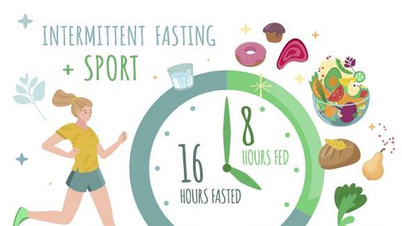Breakfast has long been considered “the most important meal of the day”. However, this advice is only true if you eat properly. On the contrary, an incorrect breakfast not only makes you tired all day but also silently harms the liver, pancreas and metabolism.

A familiar Vietnamese breakfast but contains a lot of refined starch and little fiber (Photo: Vu Pham).
Breakfast seems healthy but is harmful
In Vietnam, it is not difficult to find typical breakfasts including a bowl of beef pho with soft white rice noodles, a bowl of crab noodle soup filled with fatty broth, or chicken vermicelli with bamboo shoots and raw vegetables.
What these seemingly “light” dishes have in common is a high content of refined starch - a form of carbohydrate that has had most of its fiber and micronutrients removed during processing.

Eating a lot of refined starch in the morning can easily cause blood sugar disorders (Photo: Getty).
When they enter the body, they quickly convert into blood sugar, causing blood sugar to spike and then drop suddenly. As a result, the feeling of hunger returns sooner, accompanied by fatigue, difficulty concentrating and sometimes unexplained irritability.
A study published in the American Journal of Clinical Nutrition found that breakfasts high in refined carbohydrates were associated with a spike in insulin levels, which increased cravings for the rest of the day.
This not only affects work performance but also increases the risk of obesity and insulin resistance - underlying factors of many metabolic diseases, including type 2 diabetes.
With the busy pace of life, many people choose quick breakfasts such as fried sticky rice, donuts or other ready-made deep-fried foods. These dishes are often attractive thanks to their crispy, hot crust and quick feeling of fullness.

Breakfast is convenient but greasy, easily causes bloating and indigestion (Photo: Getty).
However, most fried foods are prepared with cooking oil that has been reused many times. During the repeated frying process at high temperatures, cooking oil creates oxidizing compounds, especially aldehydes - a group of substances that have been studied to cause inflammation, damage cells and affect liver function.
When consumed in the morning, when the digestive system has just "waked up" after a night's rest, organs such as the liver, pancreas and stomach must work early at high intensity to process the amount of fat and oxidizing compounds taken in.
Absorption occurs faster on an empty stomach, putting pressure on the metabolic system and increasing the risk of toxic substances accumulating in the blood.
According to the National Institute of Nutrition, re-heating cooking oil can damage liver cells, increase the risk of fatty liver disease and affect blood vessel function. For people with risk factors such as high blood fat and pre-diabetes, this is the "last straw" that causes the disease to silently progress.
Skipping breakfast may not be as bad as you think.
In some cases, skipping breakfast for a short period of time can put the body into a state of intermittent fasting - a natural physiological mechanism that helps mobilize stored energy from glycogen and fat.
When there is no glucose from food, the liver breaks down glycogen into sugar and triggers mild fat burning to maintain basic functioning.

Proper intermittent fasting helps activate the fat burning mechanism and use stored energy (Photo: Getty).
A 2018 study published in the journal Cell Metabolism found that, when performed in a controlled manner, intermittent fasting is not only safe, but also improves insulin sensitivity, reduces systemic inflammation, and aids weight regulation in overweight people at risk of metabolic disorders.
However, this does not mean that skipping breakfast is encouraged arbitrarily, especially for people who need to maintain stable energy levels during the day such as students, physical workers or patients with underlying medical conditions.
It’s not whether you eat breakfast or not, it’s the quality of your meal that matters. If the choice is between a high-sugar, low-quality fried-oil breakfast or delaying your meal by a few hours, then controlled fasting may not be the metabolically bad choice.
Eat breakfast properly to avoid "spreading diseases"
A nutritionally balanced breakfast should include quality protein sources such as boiled eggs, tofu, fish or unsweetened yogurt.

Boiled eggs are a simple, easy-to-digest source of protein and a good breakfast (Photo: Congerdesign).
In addition, adding fiber from green vegetables, fruits with low glycemic index (such as avocado, apple, pear) along with whole grain starch such as sweet potatoes, boiled corn or whole wheat bread will help stabilize blood sugar, prolong the feeling of fullness and support the digestive process.
Nutritionists recommend eating breakfast between 7am and 9am - a time frame that fits the body's biological rhythm and digestive enzyme secretion.
Eating too early when the stomach is not really ready, or eating too late causing the body to fall into a state of prolonged energy deficiency, can affect performance and metabolism during the day.
The key is not whether you eat breakfast, but how you eat it.
A properly chosen breakfast not only provides steady energy for the body and brain, but also contributes to maintaining long-term metabolic health. Conversely, if eaten incorrectly, it can silently lay the foundation for disorders such as insulin resistance, high blood fat and fatty liver.
Source: https://dantri.com.vn/suc-khoe/bua-sang-tro-thanh-ganh-nang-vi-mot-thoi-quen-pho-bien-cua-nguoi-viet-20251008113340407.htm





![[Photo] Prime Minister Pham Minh Chinh chairs a meeting of the Government Standing Committee on overcoming the consequences of natural disasters after storm No. 11](https://vphoto.vietnam.vn/thumb/1200x675/vietnam/resource/IMAGE/2025/10/09/1759997894015_dsc-0591-jpg.webp)

![[Photo] Prime Minister Pham Minh Chinh chairs the Conference to deploy the National Target Program on Drug Prevention and Control until 2030](https://vphoto.vietnam.vn/thumb/1200x675/vietnam/resource/IMAGE/2025/10/09/1759990393779_dsc-0495-jpg.webp)
































































































Comment (0)